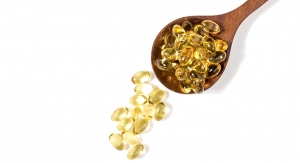03.28.19
In a study published in the Nature journal Molecular Psychiatry, researchers from the Arizona State University Biodesign Institute explored a safe and simple treatment for one of the most devastating and perplexing afflictions: Alzheimer’s disease (AD).
Lead authors Ramon Velazquez and Salvatore Oddo, along with their colleagues in the ASU-Banner Neurodegenerative Disease Research Center (NDRC), investigated the effects of choline, an important nutrient that may hold promise against the memory-stealing disorder.
The study focused on mice bred to display AD-like symptoms. Results demonstrated that when these mice were given high choline in their diet, their offspring showed improvements in spatial memory, compared with those receiving a normal choline regimen in the womb.
The beneficial effects of choline supplementation appeared to be transgenerational, not only protecting mice receiving choline supplementation during gestation and lactation, but also the subsequent offspring of these mice.
While this second generation received no direct choline supplementation, they nevertheless reaped the benefits of treatment, likely due to inherited modifications in their genes.
The exploration of such epigenetic alterations may open new avenues of research and suggest ways of treating a broad range of transgenerational afflictions, including fetal alcohol syndrome and obesity.
Supplementing the Brain
Choline acts to protect the brain from Alzheimer’s disease in at least two ways, according to researchers, both of which were explored in this study. First, choline reduces levels of homocysteine‚ an amino acid that can act as a potent neurotoxin, contributing to the hallmarks of AD: neurodegeneration and the formation of amyloid plaques.
Homocysteine is known to double the risk of developing Alzheimer’s disease and is found in elevated levels in patients with AD. Choline performs a chemical transformation, converting the harmful homocysteine into the helpful chemical methionine.
Secondly, choline supplementation reduces the activation of microglia—cells responsible for clearing away debris in the brain. While their housekeeping functions are essential to brain health, activated microglia can get out of control, as they typically do during AD. Over-activation of microglia causes brain inflammation and can eventually lead to neuronal death. Choline supplementation reduces the activation of microglia, offering further protection.
The NDRC researchers were joined by co-authors from the Translational Genomics Research Institute in Phoenix. (Oddo is also a researcher with ASU’s School of Life Sciences.)
Effects of Choline
Choline is a vitamin-like essential nutrient that is naturally present in some foods and also available as a dietary supplement. It is a source of methyl groups needed for many steps in metabolism. All plant and animal cells require choline to maintain their structural integrity.
Choline is used by the body to produce acetylcholine, an important neurotransmitter essential for brain and nervous system functions including memory, muscle control and mood. Choline also plays a vital role in regulating gene expression.
It has long been recognized that choline is particularly important in early brain development. Pregnant women are advised to maintain choline levels of 550 mg per day for the health of their developing fetus. “There’s a twofold problem with this,” lead author Velazquez said. “Studies have shown that about 90% of women don’t even meet that requirement. Choline deficits are associated with failure in developing fetuses to fully meet expected milestones like walking and babbling. But we show that even if you have the recommended amount, supplementing with more in a mouse model gives even greater benefit.”
Indeed, when the AD study mice received supplemental choline in their diet, their offspring showed significant improvements in spatial memory, which was tested in a water maze. Subsequent examination of mouse tissue extracted from the hippocampus, a brain region known to play a central role in memory formation, confirmed the epigenetic alterations induced by choline supplementation. Modified genes associated with microglial activation and brain inflammation, and reduced levels of homocysteine resulted in the observed performance improvements in spatial memory tasks.
Due to the epigenetic modifications induced by choline, the improvements carried over to the offspring of mice receiving supplemental choline in the womb. “We found that early choline supplementation decreased homocysteine while increasing methionine, suggesting that high choline levels convert homocysteine to methionine,” Velazquez said. “This conversion happens thanks to an enzyme known as betaine-homocysteine methyltransferase (BMHT). We found that choline supplementation increased the production of BMHT in two generations of mice”
The study’s significance is two-fold, establishing beneficial effects from nutrient supplementation in successive generations and proposing epigenetic mechanisms to account for the reduction of AD memory deficit in mice. “No one has ever shown transgenerational benefits of choline supplementation,” Velazquez said. “That’s what is novel about our work.”
Choline is an attractive candidate for treatment of AD as it is considered a very safe alternative, compared with many pharmaceuticals. The authors noted that it takes about nine times the recommended daily dose of choline to produce harmful side effects.
Future work will explore the effects on AD of choline administered in adults rather than fetal mice. The authors stressed, however, that while results in mice are promising, a controlled clinical trial in humans will ultimately determine the effectiveness of choline as a new weapon in the fight against Alzheimer’s disease.
Lead authors Ramon Velazquez and Salvatore Oddo, along with their colleagues in the ASU-Banner Neurodegenerative Disease Research Center (NDRC), investigated the effects of choline, an important nutrient that may hold promise against the memory-stealing disorder.
The study focused on mice bred to display AD-like symptoms. Results demonstrated that when these mice were given high choline in their diet, their offspring showed improvements in spatial memory, compared with those receiving a normal choline regimen in the womb.
The beneficial effects of choline supplementation appeared to be transgenerational, not only protecting mice receiving choline supplementation during gestation and lactation, but also the subsequent offspring of these mice.
While this second generation received no direct choline supplementation, they nevertheless reaped the benefits of treatment, likely due to inherited modifications in their genes.
The exploration of such epigenetic alterations may open new avenues of research and suggest ways of treating a broad range of transgenerational afflictions, including fetal alcohol syndrome and obesity.
Supplementing the Brain
Choline acts to protect the brain from Alzheimer’s disease in at least two ways, according to researchers, both of which were explored in this study. First, choline reduces levels of homocysteine‚ an amino acid that can act as a potent neurotoxin, contributing to the hallmarks of AD: neurodegeneration and the formation of amyloid plaques.
Homocysteine is known to double the risk of developing Alzheimer’s disease and is found in elevated levels in patients with AD. Choline performs a chemical transformation, converting the harmful homocysteine into the helpful chemical methionine.
Secondly, choline supplementation reduces the activation of microglia—cells responsible for clearing away debris in the brain. While their housekeeping functions are essential to brain health, activated microglia can get out of control, as they typically do during AD. Over-activation of microglia causes brain inflammation and can eventually lead to neuronal death. Choline supplementation reduces the activation of microglia, offering further protection.
The NDRC researchers were joined by co-authors from the Translational Genomics Research Institute in Phoenix. (Oddo is also a researcher with ASU’s School of Life Sciences.)
Effects of Choline
Choline is a vitamin-like essential nutrient that is naturally present in some foods and also available as a dietary supplement. It is a source of methyl groups needed for many steps in metabolism. All plant and animal cells require choline to maintain their structural integrity.
Choline is used by the body to produce acetylcholine, an important neurotransmitter essential for brain and nervous system functions including memory, muscle control and mood. Choline also plays a vital role in regulating gene expression.
It has long been recognized that choline is particularly important in early brain development. Pregnant women are advised to maintain choline levels of 550 mg per day for the health of their developing fetus. “There’s a twofold problem with this,” lead author Velazquez said. “Studies have shown that about 90% of women don’t even meet that requirement. Choline deficits are associated with failure in developing fetuses to fully meet expected milestones like walking and babbling. But we show that even if you have the recommended amount, supplementing with more in a mouse model gives even greater benefit.”
Indeed, when the AD study mice received supplemental choline in their diet, their offspring showed significant improvements in spatial memory, which was tested in a water maze. Subsequent examination of mouse tissue extracted from the hippocampus, a brain region known to play a central role in memory formation, confirmed the epigenetic alterations induced by choline supplementation. Modified genes associated with microglial activation and brain inflammation, and reduced levels of homocysteine resulted in the observed performance improvements in spatial memory tasks.
Due to the epigenetic modifications induced by choline, the improvements carried over to the offspring of mice receiving supplemental choline in the womb. “We found that early choline supplementation decreased homocysteine while increasing methionine, suggesting that high choline levels convert homocysteine to methionine,” Velazquez said. “This conversion happens thanks to an enzyme known as betaine-homocysteine methyltransferase (BMHT). We found that choline supplementation increased the production of BMHT in two generations of mice”
The study’s significance is two-fold, establishing beneficial effects from nutrient supplementation in successive generations and proposing epigenetic mechanisms to account for the reduction of AD memory deficit in mice. “No one has ever shown transgenerational benefits of choline supplementation,” Velazquez said. “That’s what is novel about our work.”
Choline is an attractive candidate for treatment of AD as it is considered a very safe alternative, compared with many pharmaceuticals. The authors noted that it takes about nine times the recommended daily dose of choline to produce harmful side effects.
Future work will explore the effects on AD of choline administered in adults rather than fetal mice. The authors stressed, however, that while results in mice are promising, a controlled clinical trial in humans will ultimately determine the effectiveness of choline as a new weapon in the fight against Alzheimer’s disease.


























